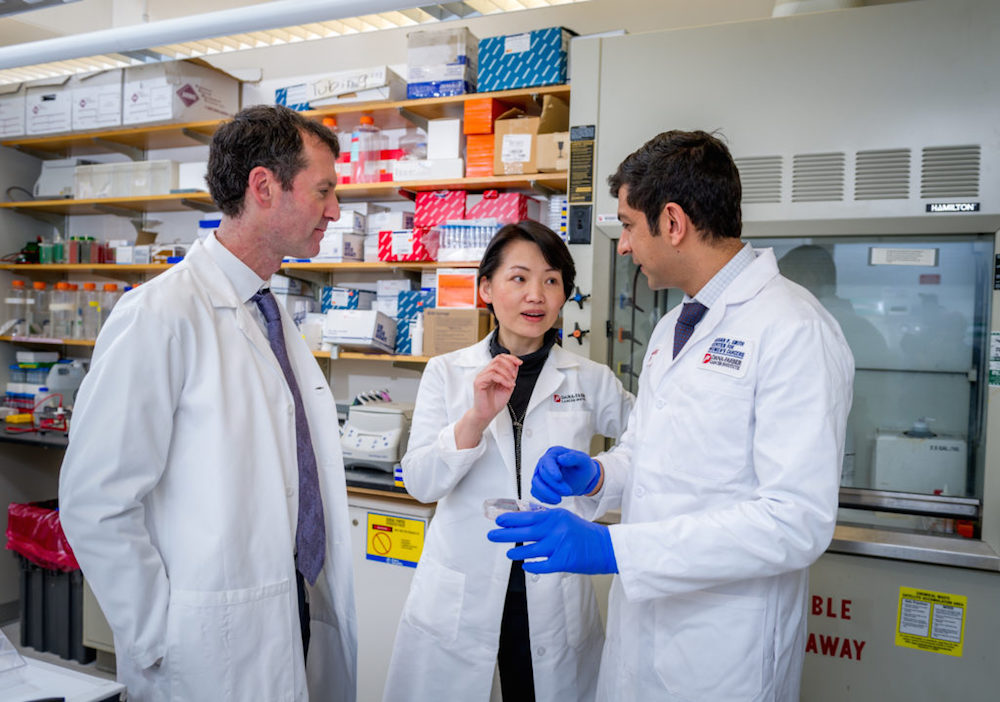A patient’s cancer cells are said to be drug-resistant if they fail to respond to a drug used to treat them. The cells may be resistant to the drug at the very start of treatment, or they may develop resistance as treatment continues.
Drug resistance is one of the major obstacles to successful cancer treatment. In some cases, drugs that initially send a patient’s cancer into remission lose their effectiveness over time, enabling the cancer to return and necessitating the use of second-line drugs to bring it back under control. It’s not unusual for tumors to eventually become resistant to multiple drugs.
Resistance can arise with either standard chemotherapy agents or newer, targeted therapies. It can occur in a variety of ways. Cancer cells may stop absorbing the drugs because the protein that carries the drug across the cell membrane stops working, or the cells may develop the ability to flush out the drug as fast as it enters. Sometimes cancer cells ramp up production of the very proteins targeted by certain drugs, diluting the drugs’ effectiveness. Cancer cells can also develop mechanisms for inactivating or disarming the drugs directed against them.

Another cause of cancer drug resistance is the natural shiftiness of tumor cells. Cancer cells are constantly evolving and adapting, acquiring new genetic mutations and other types or irregularities in their DNA. Tumors are often composites of cells with different sets of mutations. A drug that kills off one subset may leave other subsets largely untouched. These drug-resistant cells, no longer having to compete for nutrients with the more vulnerable cells, may begin to dominate the tumor.
Many chemotherapy agents derive their cancer-killing power from their ability to damage cancer cells’ DNA, rendering the cells unable to sustain themselves. Sometimes, cancer cells develop the ability to repair such damage, basically negating the effect of chemotherapy. It’s not unusual for cancer cells to deploy several of these mechanisms to foil the purposes of chemotherapy and other cancer drugs.
At Dana-Farber and elsewhere, scientists are working on ways to “re-sensitize” cancer cells to chemotherapy agents – to restore the cells’ initial susceptibility to the drugs. Research led by Loren Walensky, MD, PhD, has focused on a protein, called MCL-1, that thwarts chemotherapy’s effectiveness against several types of cancer. The researchers found that blocking a particular portion of the protein can allow cancer drugs to kill tumor cells by a process known as apoptosis, or programmed cell death.
Recently Dana-Farber’s Shom Goel, MD, PhD, and his team showed that a type of breast cancer often resistant to targeted therapies can be driven back into remission in mice by a drug that blocks the division of cancer cells. The results, achieved with agents known as CDK4/6 inhibitors, prompted researchers to launch a clinical trial of the new agent in women with a metastatic form of this cancer, known as HER2-positive breast cancer.
Immunotherapy has shown impressive results in some patients with advanced lung cancer, melanoma, and a few other cancers — but it helps only a minority of people. Scientists are looking into the possibility of converting resistant tumors into tumors that are more vulnerable to immunotherapy.
Learn more about cancer treatment from Dana-Farber Cancer Institute.
